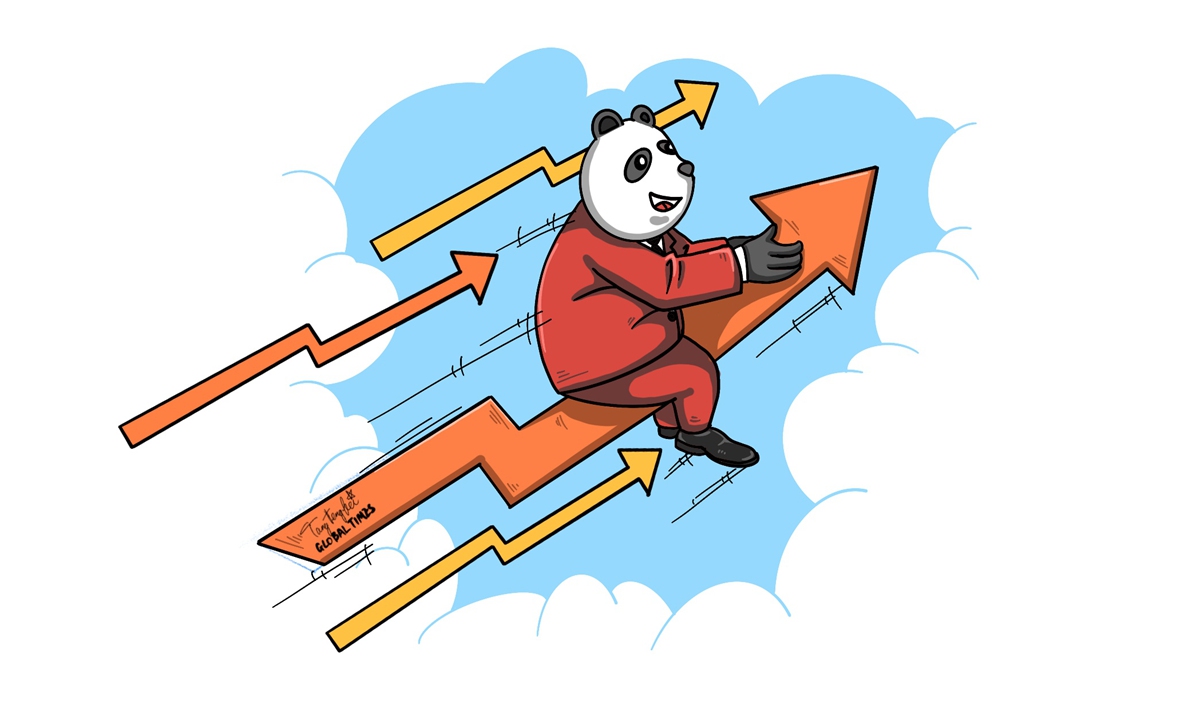Rubio threat cannot overcome bright future of Chinese firms
Source: Global Times Published: 2020/10/28 21:57:22

Illustration: Tang Tengfei/GT
The US Republican Senator Marco Rubio has upped his attacks on Chinese firms, trying to cut ties from the US capital market of certain Chinese companies. This cold war mentality shared by some US politicians goes against market principles and is doomed to fail in the long run.The radical anti-China senator has introduced a bill seeking to block US financial institutions from investing in Chinese firms blacklisted by Washington and banning those Chinese firms from trading on US exchanges, Reuters reported.
On the blacklist are mainly high-tech firms with promising development prospects like leading 5G developer Huawei, tech firm Hikvision and Dahua, and plane-maker Aviation Industry Corporation of China.
Upholding a cold war mentality, these US politicians and even governmental departments have been tirelessly trying to insult Chinese firms by putting them on trade blacklists, insulting those listing on US exchanges or forcing them to strip some of their businesses.
Nearly all the vicious attacks come under one catch-all, without evidence: potential "national security" threat.
However, banging the drum of "national security" cannot invalidate the intrinsic principles of market economics. The nature of businesses and capital is to seek out their own interests and shun risk. Their direction is profit, rather than administrative orders.
As long as businesses enjoy rosy returns, capital won't be trapped by political forces and will eventually find a way to pursue a profitable investment.
For the Chinese firms on the so-called blacklists, banning them from trading on US stock markets may not be an efficient approach. Huawei, for example, is a private company. Hikvision and AVIC are listed on Chinese stock exchanges.
Chinese firms listed on US exchanges are also increasingly listing at home. E-commerce giant Alibaba, which went public in New York in 2014 and recorded the largest IPO at that time, made a secondary listing in the Hong Kong Special Administrative Region at the end of 2019, followed by e-commerce giant JD.com and internet company NetEase.
The underlying reason is simple. If a market shows escalating risk and a deteriorating business environment, firms with a nature of avoiding uncertainties will gradually leave.
As the novel coronavirus continues to sweep the world and darken the prospects of the global economy, China has unveiled a new economic development pattern of dual circulation that takes the domestic market as the mainstay while letting internal and external markets boost each other.
Under such circumstances, depriving Chinese businesses of US capital won't strangle their development as there remains sufficient international capital for Chinese firms to work with.
At the end of the day, it is the principle of the market that determines the development of economies, rather than external attempts to disturb or reverse those movements.
The article was compiled based on an interview with Zhao Xijun, vice president of the School of Finance at the Renmin University of China. bizopinion@globaltimes.com.cn
Posted in: EXPERT ASSESSMENT